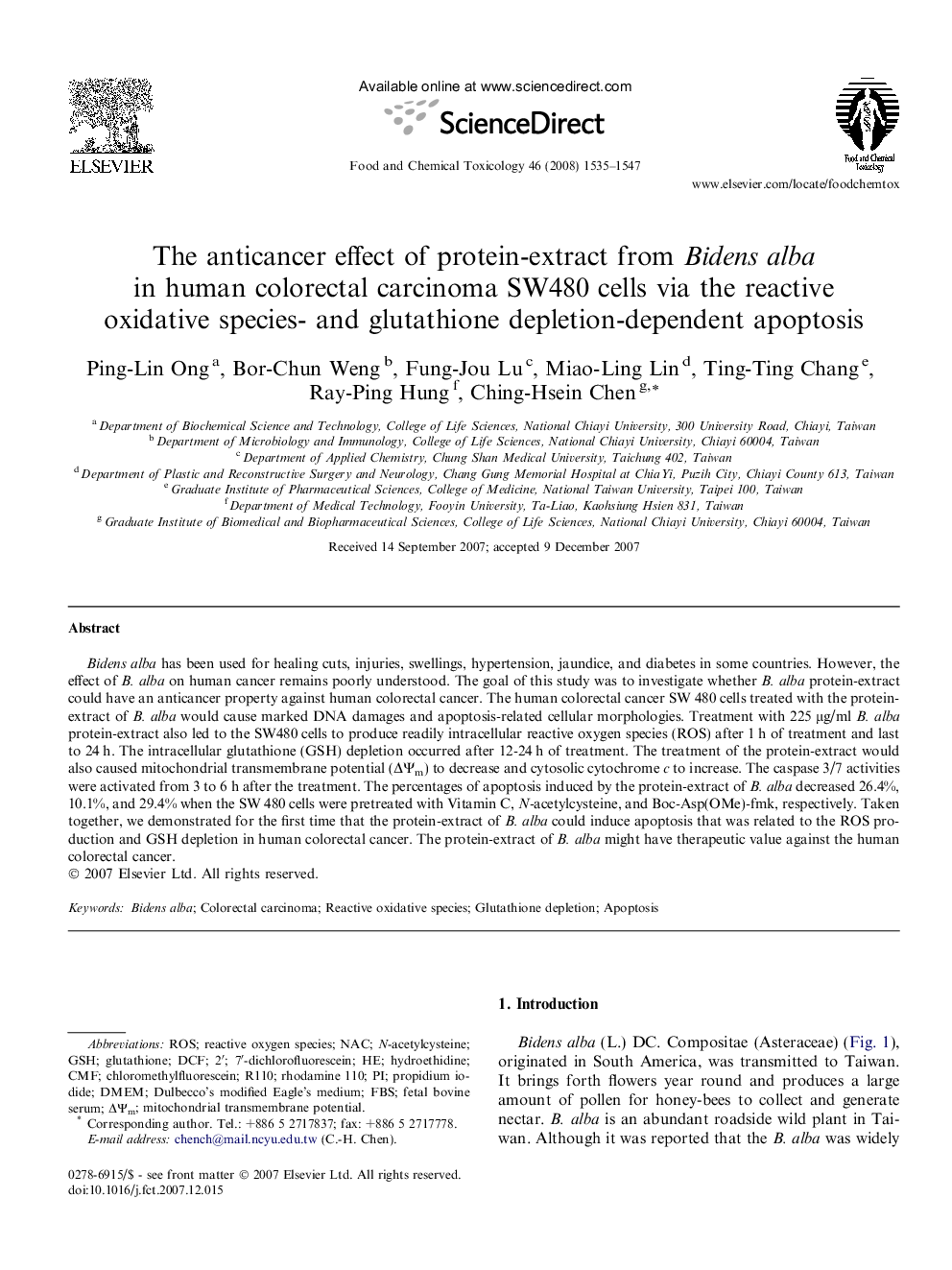| Article ID | Journal | Published Year | Pages | File Type |
|---|---|---|---|---|
| 2587454 | Food and Chemical Toxicology | 2008 | 13 Pages |
Bidens alba has been used for healing cuts, injuries, swellings, hypertension, jaundice, and diabetes in some countries. However, the effect of B. alba on human cancer remains poorly understood. The goal of this study was to investigate whether B. alba protein-extract could have an anticancer property against human colorectal cancer. The human colorectal cancer SW 480 cells treated with the protein-extract of B. alba would cause marked DNA damages and apoptosis-related cellular morphologies. Treatment with 225 μg/ml B. alba protein-extract also led to the SW480 cells to produce readily intracellular reactive oxygen species (ROS) after 1 h of treatment and last to 24 h. The intracellular glutathione (GSH) depletion occurred after 12-24 h of treatment. The treatment of the protein-extract would also caused mitochondrial transmembrane potential (ΔΨm) to decrease and cytosolic cytochrome c to increase. The caspase 3/7 activities were activated from 3 to 6 h after the treatment. The percentages of apoptosis induced by the protein-extract of B. alba decreased 26.4%, 10.1%, and 29.4% when the SW 480 cells were pretreated with Vitamin C, N-acetylcysteine, and Boc-Asp(OMe)-fmk, respectively. Taken together, we demonstrated for the first time that the protein-extract of B. alba could induce apoptosis that was related to the ROS production and GSH depletion in human colorectal cancer. The protein-extract of B. alba might have therapeutic value against the human colorectal cancer.
